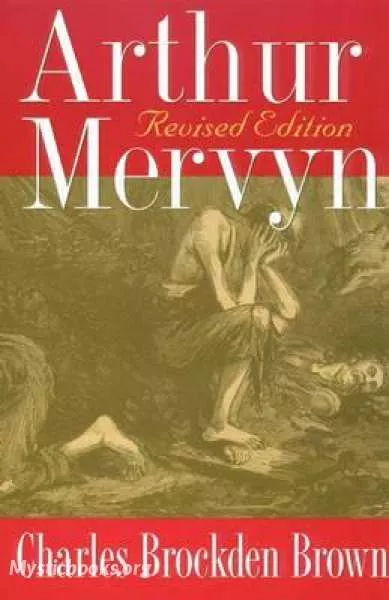
Arthur Mervyn
'Arthur Mervyn' Summary
Meeting Mervyn
Arthur Mervyn is discovered by Dr. Stevens sitting on a bench. He is suffering from yellow fever, and since Dr. Stevens has pity on him, is invited into the Stevens household. A little after he gets better, Mr. Wortley comes over to pay Dr. Stevens a visit, recognizes Arthur Mervyn, and reacts with extreme displeasure at seeing him. Dr. Stevens is of course suspicious of Mervyn now and demands an explanation for Wortley's reaction. Mervyn begins to tell his story in an effort to clear his name in the eyes of Dr. Stevens. This is the frame, and nearly three quarters of the book bring Mervyn's adventures up to this moment in time. The rest of the book continues on after the storytelling, with Mervyn keeping Dr. Stevens informed either in person or via letters of the continuing adventures, all of which revolve around a tightly knit network of people.
Arthur Mervyn lived with his father and their servant, Betty, on a farm near Philadelphia. Betty, however, married the father and Mervyn could no longer remain in the house without conflict. Arthur leaves and heads toward the city, where he ends up penniless, as he has been cheated out of all his money on the way there.
Arrival in the city
Upon arriving in the city he seeks out a friend of his father's, but he never ends up meeting him. Instead he meets a man named Wallace who invites him to stay in his home for the night. Arthur follows Wallace home, and Wallace promptly locks him into a pitch dark room. Realizing that he has been tricked, Arthur tries to escape without being noticed. He does this, but not before he overhears a private conversation between the true occupants of his quarters. When Arthur does manage to escape, he leaves behind only his shoes and some open doors and windows. Without shoes or money he decides to head home but can't because he can't pay the bridge toll. He further begs money from a man he meets on the street, and is promptly hired by this man.
Book Details
Authors
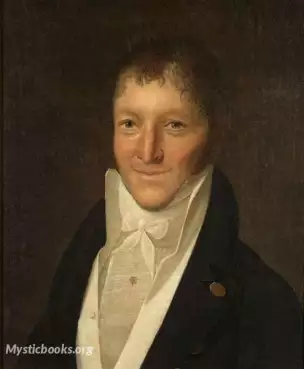
Charles Brockden Brown
United States
Charles Brockden Brown (January 17, 1771 – February 22, 1810) was an American novelist, historian, and editor of the Early National period. He is generally regarded by scholars as the most impor...
Books by Charles Brockden BrownDownload eBooks
Listen/Download Audiobook
- Select Speed
Related books

Walpurgisnacht by Gustav Meyrink
In "Walpurgisnacht," Gustav Meyrink weaves a tale of mystery and the supernatural set in Prague. A sleepwalking actor disrupts a gathering in the hom...
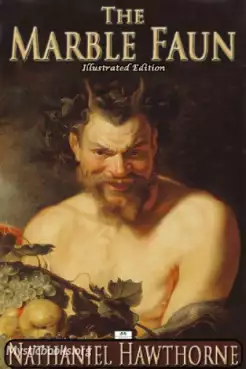
The Marble Faun by Nathaniel Hawthorne
The Marble Faun is Hawthorne's most unusual romance. Writing on the eve of the American Civil War, Hawthorne set his story in a fantastical Italy. The...

Thing from the Lake by Eleanor M. Ingram
In the tranquil countryside of Connecticut, Roger Locke embarks on a journey to renovate an abandoned farmhouse. Little does he know that this seeming...
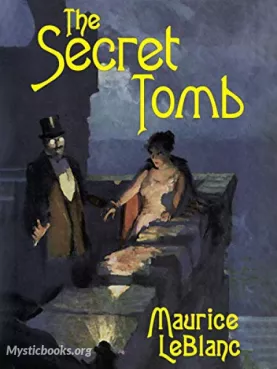
The Secret Tomb by Maurice Leblanc
The renowned master of suspense and adventure, a thrilling tale unfolds as renowned thief and gentleman, Arsène Lupin, finds himself entangled in a we...
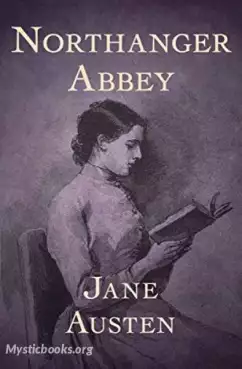
Northanger Abbey by Jane Austen
Northanger Abbey is a coming-of-age novel and a satire of Gothic novels written by Jane Austen. It was completed in 1803, the first of Austen’s novels...

Camera Fiend by E. W. Hornung
In the bustling streets of Victorian London, a young schoolboy, playing truant from his studies, stumbles upon a sinister secret. Drawn into the clutc...

Loup-garou! by Eden Phillpotts
Loup-garou! is a collection of short stories by Eden Phillpotts, each exploring a different facet of the supernatural. Set in the rural heartland of D...

Open Door and The Portrait by Margaret O. Oliphant
Two stories "of the seen and unseen" with mysterious occurrences by Margaret O. Oliphant, originally published in 1881. (Summary by Gesine)

Gerrard Street Mystery and Other Weird Tales by John Charles Dent
John Charles Dent, the author of the following remarkable stories, was born in Kendal, Westmorland, England, in 1841. His parents emigrated to Canada...
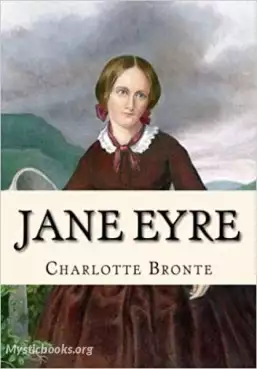
Jane Eyre by Charlotte Brontë
This timeless novel highlights the abuse and neglect that the orphaned Jane Eyre faced while growing up. This story opens with Jane Eyre being shipp...
Reviews for Arthur Mervyn
No reviews posted or approved, yet...